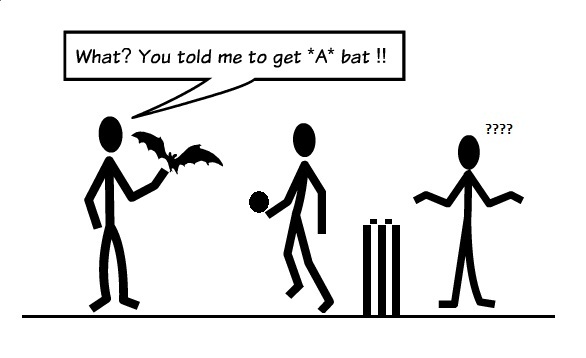Wordplay Content is a full-service content writing agency. Our content writing India business provides content writing services for a plethora of customers. Reach out if you want to hire us for your inbound marketing campaign! Now that you’ve learnt the basics about article usage, here’s some know-how on how to use articles.
When to Use Definite Articles?
If your sentence fits the types below, go ahead and use the Definite Article:
#1: Sentences where the particular person or thing has already been referred to in the context.
Examples:
- The item that you ordered is out of stock (Which item? The one you had ordered!)
- In the closing scene, the hero wins the battle (Which hero? The hero already spoken about)
#2: Before certain proper nouns like the names of places, books and musical instruments.
Examples:
- The Arabian Sea, the Bible, the Soviet Union
- He plays the guitar all day long
#3: Before Superlatives and Ordinals.
Examples:
- That was the most exciting game of the year
- She was the last one to own up
#4: Sentences where the singular noun is meant to represent its entire class or is unique in its own right.
Examples:
- The dog is loyal by nature
- The Earth, the moon, the ocean
A Few More Tips…
Apart from the basic rules, there are a few more instances where ‘The’ may be used, but these can be a little trickier because they have their own set of applicable rules.
We can generalize them into these two types:
#1: Comparisons where an adverb is used.
Example: The more I sleep, the sleepier I feel.
#2: Before an adjective when the noun is understood.
Example: The greedy can never be satisfied. (The noun, in this case ‘people’, is omitted because it is obvious, making the adjective ‘greedy’ require a definite article)
When to Use Indefinite Articles?
Indefinite Articles have their own set of definable rules. Here are some key pointers:
#1: When talking about a singular noun, or an individual item from a group of a noun.
Examples: A word, a strand of hair, an animal, a student, a teacher
#2: Sentences where the noun’s identity is uncertain.
Examples:
- A man is at the front door.
- Far away, a train whistled
#3: When you wish to make a common noun of a proper noun.
Example: We have a Shakespeare among us.
When NOT to Use Articles…
To take this a step further, there are certain types of sentences in English grammar that require no articles.
Known as the ‘Zero’ article, it is used for nouns where neither articles do justice. This may come in handy when you wish to say something where the quantity is neither definite nor indefinite.
Watch out for sentences that belong to the types mentioned below:
#1: Sentences where abstract, uncountable nouns and names of substances are used (silence, honesty, salt, honey)
Example: I drink a lot of water every day.
(Note: Uncountable abstract nouns need ‘The’ when they carry an adjective or an adjectival phrase or clause. For example –
- I will not forget the honesty in his voice
- Could you pass the salt?)
#2: Sentences where plural nouns are used in a general sense.
Example: I love desserts.
#3: Before the names of people, continents, countries, cities and languages, except the ones mentioned earlier.
Example: Gopal works here. He speaks French fluently.
#4:Names of meals, when spoken of generally.
Example: Dinner is served.
#5: Before phrases where a transitive verb is followed by its object like – to catch fire, to take offense etc.
Example: He set foot on his long journey.
#6: Sentences where the preposition is followed by its object like – on demand, at sight, by train etc.
Example: I will see you at home.
#7: For denoting the negative quantities of a noun.
If a noun is neither singular nor plural, a good way to denote negative denominations of the noun or to give it a Zero quantity, is by adding the word ‘No’.
A common example of this sentence may be found in restaurants with ‘No pets allowed’ and similar such signs.
With the help of these handy pointers, you will be quick to spot an out-of-place ‘A, An’ or ‘The’!






2 Responses to A, An or The – The Fine Art of Article Usage